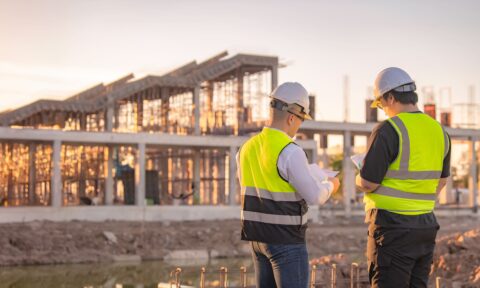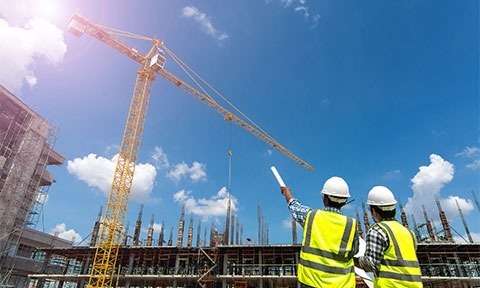Quantification of risk, resilience and sustainability in critical infrastructure management
- Online course on risk, resilience, and sustainability for critical infrastructure.
- Emphasis on quantifying risk, resilience, and impacts of hazards.
- Course aligns with SDGs 9, 11, 13 and UK, EU strategic priorities.
- Intended for engineers, operations managers, applied scientists.
- Lecturers are experts in resilience-based design and infrastructure resilience.
Overview
The Online Risk, Resilience and Sustainability Training course focuses on assessing and quantifying risk and resilience of critical infrastructure to extreme events and diverse hazards. It aims to help engineers, consultants, and operators make informed decisions for infrastructure assets and networks. The course covers topics such as vulnerability assessment, risk analysis, adaptation, and sustainability quantification. It aligns with Sustainable Development Goals and strategic priorities of the UK and EU. The course is designed for engineers, operations managers, fabricators, applied scientists, and technologists interested in infrastructure management.
Who should attend
Engineers, Operations managers, Fabricators, Applied Scientists, Technologists
Course Content
ABOUT THE COURSE
The exposure of critical infrastructure to climate hazards such as floods, extreme temperatures and other geohazards impact on infrastructure with dramatic consequences on world economies and societies. Therefore, risk and resilience assessment and quantification (see Figure 1) of infrastructure assets and networks to extreme events and sequences of diverse hazards are of paramount importance for maintaining their functionality and continuous operation even after severe hazard occurrences. In this context, engineers, consultants, owners and operators need to quantify the risk, resilience and the impacts of hazards on the infrastructure ecosystem, the environment and the economy to reach better decision for their assets and networks. This quantification should account for the sequence of hazards, the type and extent of damage and impact on an asset or network functionality, the latter expressed by robustness, and the importance of the asset, the available resources and priorities, including the rapidity and resourcefulness.
This 2-day course will provide a systematic introduction to the concept of risk, resilience and sustainability assessment of critical infrastructure, including quantifications of tCO2e towards improving the sustainability of critical infrastructure. The main emphasis of the course is placed on the fundamental principles to help the learner confidently build up their knowledge in this specialist subject. Examples and practical applications will be presented to illustrate the main components of risk and resilience, i.e. hazard actions, typology of infrastructure (e.g. highways, railways, ports, water, energy system), damage modes, fragility/vulnerability analysis, loss assessment (direct/indirect), restoration models, mitigation measures and decision-making for networks. The course will also discuss the importance and the value of digital data, the use of emerging technologies and the way to incorporate social parameters in the design and assessment of infrastructure in a participatory manner.
The course is aligned to SDGs 9,11,13 and in support of the UK’s and the EU’s strategic priorities for: (i) Climate-resilient infrastructure; (ii) UK fit for the digital era, (iii) the HM Government Global Britain in a competitive age, and the 4) EPSRC priority for a Resilient Nation.
WHO SHOULD ATTEND?
The course is intended for Engineers, Operations managers, Fabricators, Applied Scientists and Technologists interested in infrastructure management.
PROGRAMME (ALL TIMINGS are in BST)
Day 1
09.00 – 10.30 Lecture 1: Introduction to risk, resilience and sustainability
10.30 – 11:00 Break
11.00 – 12.30 – Lecture 2: Vulnerability assessment for critical infrastructure
12.30 – 13.30 – Break
13.30 – 15.00 – Lecture 3: Risk analysis, QRA and stress testing
15.00 – 15.30
Break
15.30 – 17.00 – Lecture 4: Adaptation and restoration for critical infrastructure
Day 2
09:00 – 10.30 Lecture 5: Resilience quantification
10.30 – 11:00 Break
11.00 – 12.30 Lecture 6: Sustainability quantification
12.30 – 13.30 Break
13.30 – 15.00 Lecture 7: Optimised risk- resilience- and sustainability-based design and SDGs
15.0 – 15.30 Break
15.30– 17.00 Lecture 8: (a) Use of emerging technologies, (b) Revision
and questionnaire-based test and feedback
CV of Lecturers
Dr Stergios Aristoteles
Dr Stergios Aristoteles Mitoulis (email: dr.mitoulis@gmail.com), Associate Professor, Dipl Eng, MSc, PhD, CEng MICE, Member ASCE, EAEE, SECED, IABSE, Fellow of the Higher Education Academy. He is the leader of the www.infrastructuResilience.com initiative. Stergios has supervised and co-supervised numerous doctoral and postdoctoral researchers. He has published extensively with a publication record exceeding 150 papers in leading scientific journals and international conferences. His expertise is the resilience-based design and assessment of assets and in particular transport infrastructure subjected to natural hazards, climate change, hydraulic hazards, creep, shrinkage and thermal effects. He is a member of the BSI B/525/10 CEN/TC250/HG-Bridges, the BSI Mirror Group of Eurocodes and UK delegate of the BSI (CEN/TC250/SC8 Work Group 6, Bridges) for the design and retrofit of bridges, the BSI committee B/525/8 and B/538/5 and the Workgroup 11 of the EAEE. He has worked extensively on the modelling, resilience-based design and assessment of infrastructure assets with an emphasis on bridges, foundations, abutments and backfills and use of waste materials in infrastructure. SM was and still is the coordinator of European projects, while has been the Principal Investigator (PI) of two KTP (Innovate UK) projects and a proof-of-concept project with Network Rail-UK on the monitoring of environmental hazards on infrastructure. SM has worked as Co-PI and researcher for another 19 research projects, relevant to bridge and networks resilience. He has editorial and reviewing responsibilities in reputed journals (more than 60). He delivers seminars at consultancies and also participates in CPD activities as an official lecturer of the Institution of Civil Engineers in the UK. Stergios is a technical advisor of Involve Nepal a charity that delivers schools in Nepal and a consultant of the CDRI. He has an extensive presence in the news of leading news agencies, including the BBC.
Dr Sotirios Argyroudis
Dr Sotirios Argyroudis, DiplEng, BSc, PhD, CEng MICE, FHEA (email: sotirios.argyroudis@brunel.ac.uk), is an Assistant Professor at the Department of Civil & Environmental Engineering, at Brunel University London. SA is a civil engineer and geologist and co-leads the www.infrastructuResilience.com, which is an initiative that strives to deliver infrastructure resiliency. He has 20 years of research experience in multi-hazard vulnerability and resilience of infrastructure (bridges, tunnels, embankments, slopes, retaining walls, highways/railways, ports, electric power networks) for e.g., floods, landslides, earthquakes, tsunamis and climate change effects. He has authored more than 100 project reports, scientific articles in high-impact journals, conferences and book chapters (h-index 21, GoogleScholar). He has been working across international partnerships and participated in 17 research projects. In 2017 he was awarded the H2020 Marie Skłodowska-Curie Individual Fellowship. He is a member of the European Association of Earthquake Engineering Working Group 13 on Seismic assessment, design and resilience of industrial facilities and Vice-Chair of the IABSE Task Group 1.8 on Design requirements for infrastructure resilience. Supervised several UG, MSc and PhD research students, and delivered lectures and CPD seminars on natural hazards and resilience assessment.
Duration:2 Days
Cost:£495 + Vat



